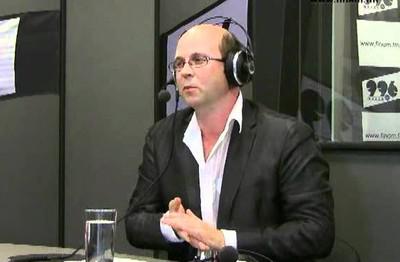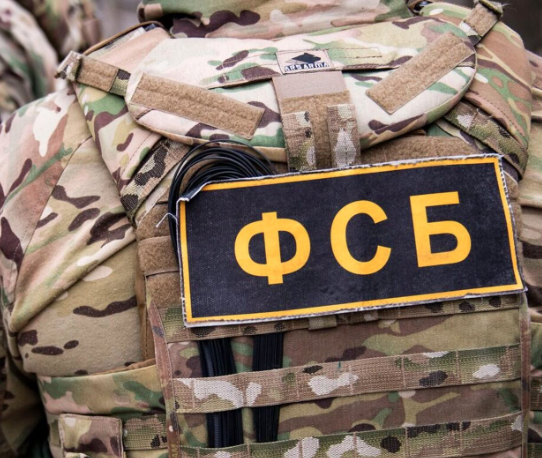Businessman-cleaner involved in BRC investigation Eduard Apsit, who built his business, including on dubious government contracts, received residence permits in Lithuania for his family. As we learned from a Lithuanian human rights organization, the application for a residence permit stated that the Apsits could be in danger in Belarus. As confirmation, it was indicated that the businessman donated to the BYSOL fund. At the same time, as BRC investigators found out, at the time of filing the petition, Eduard Apsit had a residence permit in the United Arab Emirates, and he and his wife are citizens of Cyprus.
With this publication, the BRC begins a discussion about where the boundaries of cooperation between civil society and business lie, about whose activities there are questions, including from European law enforcement officers.

The BRC continues its investigation. We learned about a new detail from the life of the Apsits: members of their family received humanitarian residence permits in Lithuania. Elena’s parents – until the end of December 2022, Edward’s mother – until mid-July 2023.
The spouses also submitted a petition, although, at first glance, there is nothing connecting them with Lithuania. The need for legalization is also not obvious: Elena has held a “golden passport” of Cyprus since 2018, just like Eduard, who also has have a residence permit in the UAE. In Lithuania, according to the BRC, spouses do not have a business or real estate.
BRC investigators found an explanation. Some democratic forces helped Apsit apply for a residence permit in Lithuania. BRC obtained a letter from one of the legal entities BYSOL Foundation. It says that Eduard Apsit donated money to the organization through the Stichting Belarus Solidarity Foundation. The total amount of support from February 2021 to May 2022 is just over €94 thousand. It also follows from the letter that since March 2022, the businessman has been financially helping Ukrainians affected by the war.

When asked by the BRC to comment on the situation, the head of the BYSOL fund, Andrei Strizhak, replied that he could neither confirm nor deny this information:
“We do not disclose the names of our donors due to the threat of criminal prosecution in Belarus for promoting extremist activities. Separately, I would like to note that we do not place restrictions on donors. Anyone can donate to BYSOL and be sure that their data will not be disclosed.”



We contacted Eduard Apsit for comment on his cooperation with the democratic forces of Belarus, but at the time of publication we had not received a response.
Problem case – BRC statement
The BRC investigative team has several questions regarding the cooperation of Eduard Apsit with the Belarusian democratic forces.
First, is this interaction correct? Apsit’s family received the opportunity to legalize themselves in an EU country in exchange for his donations to the democratic forces of Belarus. He asked the same for himself and his wife. Such relationships between a businessman and foundations go beyond charity; they can be interpreted as commercial: a service in exchange for donations.
The second question, even somewhat of an ethical nature. Can a person make donations to democratic forces to atone for possible money laundering? Is this enough for civil initiatives to help him with legalization in the EU? Especially if he has the right to be in countries where he is not threatened by persecution by the Belarusian regime. In general, can democratic forces provide favors to businessmen with unproven reputations in return for donations? And if so, what is an acceptable size?
“Perhaps Eduard Apsit donated money without any calculation, but we must clearly understand that after the full-scale invasion of Ukraine, the life and activities of many businesses in Russia and Belarus became significantly more complicated. For a particularly large business, even a six-figure sum is not a major investment in whitening its reputation in the West,” says Vytis Jurkonis, head of the Lithuanian office of Freedom House.
It is likely that the €94 thousand that Apsit sent to the Baysol Foundation could benefit people or organizations that work in spite of repression. However, this amount does not seem impressive in comparison with the businessman’s earnings on gray schemes. From the point of view of the judicial system, the minimum condition for atonement for an economic crime is compensation for damages. The volume of donations by Eduard Apsit is not comparable with the amounts of which he is suspected of laundering – in Latvia alone, the investigation says about €73 million.
Vytis Jurkonis notes that Freedom House will now pay even more attention to the verification of people:
“It is important for Belarusian civil initiatives to understand that they can be used, and for me, as a person who mediates, I need to focus even more on the verification process, although there are already enough reproaches about our strict approach.”
The BRC investigative team believes that representatives of democratic forces, civil initiatives and foundations should take responsibility and vet the donors to whom they advise, as well as provide information about their activities to the human rights organizations they contact. This is a matter of their reputation. At the same time, no donations oblige you to give anything in return, as they are charitable.
The BRC team is also confident that civil society and independent media will be stronger, more professional and independent if they continue to be supported by ordinary Belarusians interested in their activities.
Dear readers!
The following inaccuracies were made in this material.
In the tender (held in 2015) for the maintenance of the Brest locomotive depot, we are talking about the amount in non-denominated rubles. The response from the prosecutor’s office based on the results of the audit (dated July 2016, after the denomination) did not indicate that the amount was not denominated. Which leads to the conclusion that we are talking about denominated rubles. In the original investigation, we did not specify these nuances and indicated the ruble exchange rate after the denomination. We apologize for this.
Also, in the investigation we did not indicate that a third company, part of the structure of the Presidential Administration, participated in the tender of the Republican Clinical Medical Center of the Administration of the President of the Republic of Belarus against two companies associated with Eduard Apsit.
Although these inaccuracies do not, in our opinion, change the essence of the investigation, we once again apologize to our readers.
The full text, in which BRC comments on possible errors in the material, can be read here.








